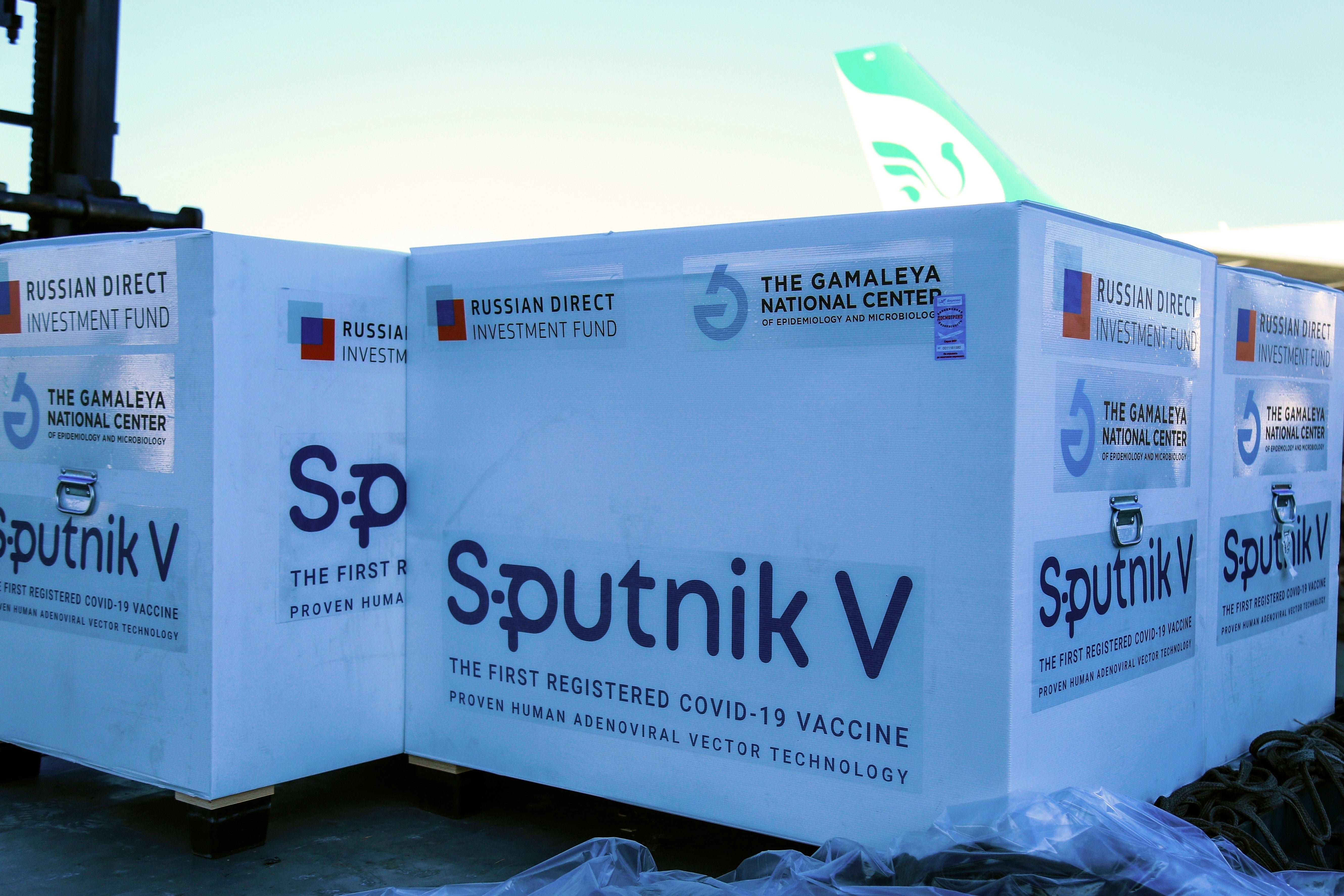South African regulator rejects Russia's COVID-19 vaccine
The South African drug regulator has rejected the Russian-made coronavirus vaccine Sputnik V, citing some safety concerns the manufacturer wasn’t able to answer

Your support helps us to tell the story
From reproductive rights to climate change to Big Tech, The Independent is on the ground when the story is developing. Whether it's investigating the financials of Elon Musk's pro-Trump PAC or producing our latest documentary, 'The A Word', which shines a light on the American women fighting for reproductive rights, we know how important it is to parse out the facts from the messaging.
At such a critical moment in US history, we need reporters on the ground. Your donation allows us to keep sending journalists to speak to both sides of the story.
The Independent is trusted by Americans across the entire political spectrum. And unlike many other quality news outlets, we choose not to lock Americans out of our reporting and analysis with paywalls. We believe quality journalism should be available to everyone, paid for by those who can afford it.
Your support makes all the difference.The South African drug regulator has rejected the Russia -made coronavirus vaccine Sputnik V, citing some safety concerns the manufacturer wasn't able to answer.
The South African Health Products Regulatory Authority, or SAHPRA, said in a statement Tuesday that the request for Sputnik V to be authorized could “not be approved at this time,” referring to past failed HIV vaccines that used a similar technology.
A late-stage study published in the journal Lancet last year in more than 20,000 participants found that Sputnik V was safe and about 91% effective in preventing people from becoming severely ill with COVID-19.
Sputnik V uses two types of harmless viruses known as adenoviruses to carry the spike protein into the body, which then primes the immune system to produce antibodies against COVID-19. SAHPRA said concerns have been raised about the safety of Adenovirus Type 5, which is used in one of the Sputnik V doses. The other dose contains Adenovirus Type 26, which is also used by Johnson & Johnson.
South African officials pointed to two failed research studies testing an HIV vaccine also using Adenovirus Type 5, which found men who were vaccinated had a higher risk of being infected with HIV. The regulators said they had asked the Russian makers of Sputnik V to provide data proving the vaccine's safety in a country with high rates of HIV but that “the applicant was not able to adequately address (their) request.”
Dr. Julian Tang, a virologist at Britain s University of Leicester was perplexed by the decision.
“It's a strange connection to make,” he said, explaining that while past concerns have been raised about using the particular virus vector in Sputnik V, much remains uncertain. “It's not the vector that caused HIV so you can't just blame it on that,” Tang said.
The vaccine made by AstraZeneca uses a related chimpanzee adenovirus; both it and the Johnson & Johnson shot have been approved in South Africa.
The Russian makers of Sputnik V, the Gamaleya Institute, couldn't immediately be reached for comment. Amid widespread vaccine hesitancy in Russia, authorities have struggled to convince people to get vaccinated and the immunization rate in the country has remained stubbornly low, at about 32%, despite availability of Sputnik V.
Sputnik V is currently also being considered for authorization by the World Health Organization and the European Medicines Agency. The shot has been given the green light in more than 70 countries. To date no significant safety problems have been identified.
___
AP Medical Writer Maria Cheng reported from London.
___
Follow all AP stories on the coronavirus pandemic at https://apnews.com/hub/coronavirus-pandemic.